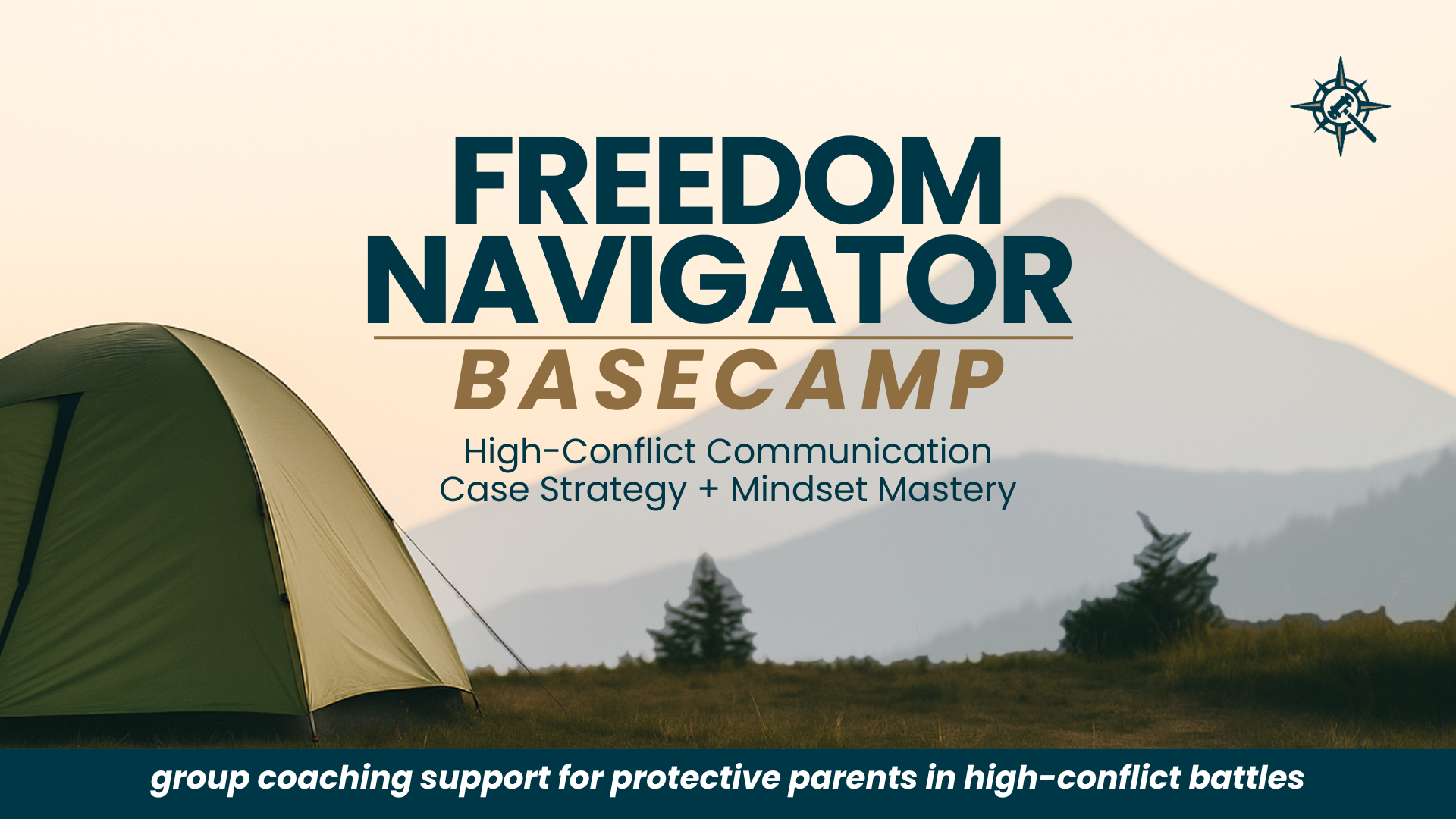Coercion Is the Engine That Drives Abuse in Family Court
Part 3 of 5 - How to Anticipate and Survive Post-Separation Abuse Dynamics in Family Court
When entitlement says “I deserve this,”
and control says “I’ll do whatever it takes to keep it,”
coercion is the brutal strategy that makes sure you surrender.
In abusive relationships—and especially in courtroom battles—coercion is what makes everything escalate.
It’s not just about what they want.
It’s about making sure you give it to them... whether that's out of exhaustion, fear, or survival instinct.
What Is Coercion?
Coercion is force, often disguised as an unavoidable choice.
It can be the manipulation of your options until you feel like you have none left.
It can feel like pressure to comply—not because you agree—but because the cost of resisting feels too high.
In court, coercion can sound like:
“If you don’t settle, I’ll drag this out and drain your finances.”
“Let’s be reasonable—just give me 50/50 and we’ll avoid a fight.”
“Why are you being difficult? The judge won’t like that.”
“If you bring up that evidence, I’ll expose your post-partum depression from back in 2017, and you'll never get the kids.”
This isn’t negotiation.
It’s psychological warfare.
Coercion Is the Intersection of Entitlement + Control
When entitlement and control collide, coercion is the outflow.
Entitlement says: “I’m owed access to the kids.”
Control says: “I’ll file 17 motions until you give in.”
Coercion says: “You don’t want to look uncooperative in front of the judge, do you?”
This is power-over at work. It’s not about resolution—it’s about domination. And it often leaves you feeling:
Exhausted
Cornered
Desperate
Gaslit
Emotionally flooded
Like there’s no way out but surrender
Common Coercion Tactics in Family Court
Delaying responses to force you into bad agreements
Refusing to cooperate unless you concede on parenting time
Exploiting your fear of losing custody or reputation
Withholding resources or information until you comply
This is how abuse outlives the stage of separation and impacts divorce.
And unless you understand what’s happening, you might start blaming yourself for “not being strong enough”—when in reality, you’re experiencing a very normal response to very abnormal high-stress coercive dynamics.
How to Respond Strategically
Want to begin to reclaim your power? Start with these baby steps:
-
List the areas where coercion has shown up before
– Which “choices” were really coerced, or made under pressure?
– What threats or consequences did they use?
-
Expect escalation
– If they’ve used emotional or logistical coercion before, expect legal versions of the same tactics.
– Operation on the baseline that any delay, stall, or manipulation is probably part of a bigger pattern—not just a fluke.
-
Work with your legal team to remove coercive pressure points
– Document every attempt at manipulation.
– Stay grounded in facts, not fear.
– Ask: “Where can I stay firm, and where can I give a little without losing what matters most?”
Coming Next: COMPLIANCE – The Hidden Fuel That Kept It All Running
Compliance is the only one of the four elements that lives on the victim’s side of the equation.
It’s what the entire system quietly relies on—and what finally gets exposed when you stop giving it.
👉 Stick around for Part 4.
Want Strategic Support That Helps You Stay Grounded?
When coercion ramps up, the most powerful thing you can do is prep with strategy—not panic.

BASECAMP gives you the tools, coaching, and support community to recognize patterns, plan your response, and stay emotionally steady—no matter how dirty they play.
🎯 Get on the waitlist to hold your spot in line, and I'll notify you when BASECAMP has an opening!